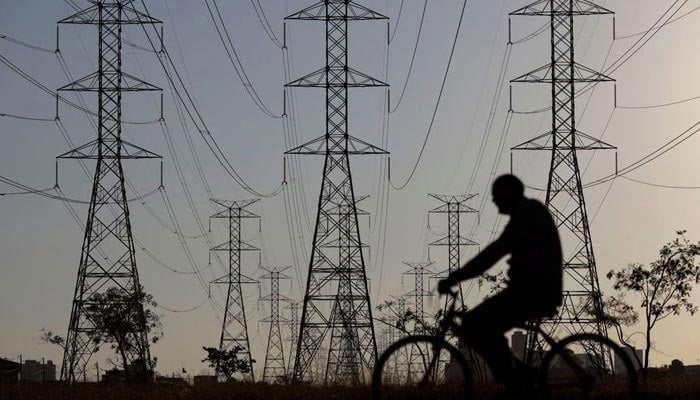Experts warn of looming grid crisis
Experts urge policymakers to develop strategy that balances renewable energy growth with grid reliability
ISLAMABAD: Pakistan’s national energy grid faces increasing pressure as more consumers turn to self-generated power, particularly solar energy, posing a threat to grid stability and long-term sustainability.
Experts at an annual plenary organized by the Sustainable Development Policy Institute (SDPI) on Thursday urged policymakers to develop a comprehensive strategy that balances renewable energy growth with grid reliability.
Adil Khattak, CEO of Attock Refinery and Attock Gen Limited, noted that while Pakistan is producing more energy than it consumes but despite that inefficiencies in the system hinder its transition to renewables. He emphasized that the rise in self-generated solar power — enabled through net metering, allowing solar owners to sell excess power back to the grid — has inadvertently created inequities. “Net metering puts a burden on those unable to afford solar panels, while those who can are moving off the grid, which destabilizes the overall energy system,” Khattak said. He added that despite these challenges, the transition to renewables is crucial but requires addressing structural issues in the energy system.
Tanveer Afzal Mirza, Company Secretary at United Energy Pakistan, highlighted the private sector’s growing interest in wind energy, which has attracted nearly $3 billion in investments. However, he pointed out that political and economic uncertainties, along with regulatory obstacles and inconsistent policies, are slowing further progress.
Hussain Talib, Head of External Affairs at Unilever Pakistan, emphasized the need for closer collaboration between the government and industry to achieve net-zero emissions, citing the Power Wheeling Coalition, a group working toward renewable energy policy reforms. He advocated for a liberalized energy market to support green initiatives but stressed that implementation responsibility lies with the government.
Tauseef H. Farooqi, former chairman of Nepra, criticized Pakistan’s current energy system, calling it “neither affordable, nor reliable and certainly not sustainable.” He urged greater private sector involvement but warned that without stable investment opportunities, progress will remain limited. One major issue raised was the need for affordable battery storage solutions to support renewable energy sources. Farooqi also updated participants on Pakistan’s Carbon Trading and Bilateral Contract Market (CTBCM) approved by Nepra in 2023 but noted the government still needs to set affordable wheeling charges for it to take effect.
Daniyal Siddiqui from DSC Energy Ltd. emphasized the importance of fast-tracking CTBCM to attract investment and help achieve green finance goals, while Shah Jahan Mirza, Managing Director of Private Power and Infrastructure Board (PPIB), warned that poor planning based on overestimated GDP growth projections has led to supply-demand imbalances. “The entire community must unite to reach net-zero emissions,” said Mirza.
Without decisive action from policymakers, Pakistan’s energy sector risks facing continued instability and inefficiency, he added.
-
 ‘Disgraced’ Andrew Still Has Power To Shake King Charles’ Reign: Expert
‘Disgraced’ Andrew Still Has Power To Shake King Charles’ Reign: Expert -
 Why Prince William Ground Breaking Saudi Tour Is Important
Why Prince William Ground Breaking Saudi Tour Is Important -
 AOC Blasts Jake Paul Over Bad Bunny Slight: 'He Makes You Look Small'
AOC Blasts Jake Paul Over Bad Bunny Slight: 'He Makes You Look Small' -
 At Least 53 Dead After Migrant Boat Capsizes Off Libya
At Least 53 Dead After Migrant Boat Capsizes Off Libya -
 'God Of War' Announces Casting Major Key Role In Prime Video Show
'God Of War' Announces Casting Major Key Role In Prime Video Show -
 Real Reason Prince William, Kate Broke Silence On Andrew Scandal Revealed
Real Reason Prince William, Kate Broke Silence On Andrew Scandal Revealed -
 Drew Barrymore Responds To 'Charlie's Angels' Costar's Comments About Her
Drew Barrymore Responds To 'Charlie's Angels' Costar's Comments About Her -
 Shakira Slips Hard On Stage During Life Show
Shakira Slips Hard On Stage During Life Show -
 King Charles Speaks Out Over Andrew's Scandal: 'Stand Ready To Help Police'
King Charles Speaks Out Over Andrew's Scandal: 'Stand Ready To Help Police' -
 Dax Shepard Recalls Horrifying Accident That Almost Killed Him
Dax Shepard Recalls Horrifying Accident That Almost Killed Him -
 Logan Paul's Bodyguard Hits Fan On Super Bowl Day
Logan Paul's Bodyguard Hits Fan On Super Bowl Day -
 Epstein Files: Anne Hathaway Mentioned As Highly Desired Guest For Bill Gates?
Epstein Files: Anne Hathaway Mentioned As Highly Desired Guest For Bill Gates? -
 Prince Harry Under A Lot Of Stress As Meghan Markle Makes Bizarre Demands
Prince Harry Under A Lot Of Stress As Meghan Markle Makes Bizarre Demands -
 Princess Beatrice, Eugenie's Subtle Break From Disgraced Parents Exposed
Princess Beatrice, Eugenie's Subtle Break From Disgraced Parents Exposed -
 Baby Left In Running Bathtub Dies After Father ‘forgets’ Him
Baby Left In Running Bathtub Dies After Father ‘forgets’ Him -
 King Charles Takes A Major Step To Keep Horrified Prince William Out Of The Loop On Andrew: Insider
King Charles Takes A Major Step To Keep Horrified Prince William Out Of The Loop On Andrew: Insider




